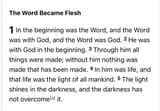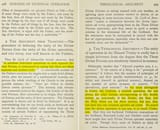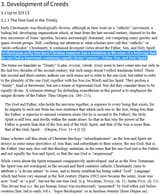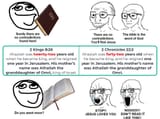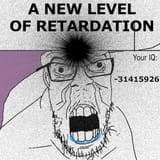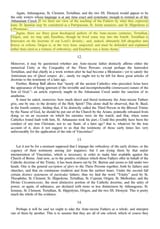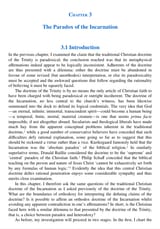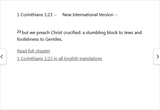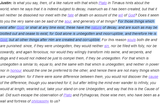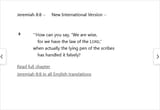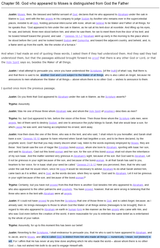>>17866750
It does not answer the question of the personhood of the trinity, but talks about operations of the named Persons, it does not debunk Trinity but explains what tritheism would be if the operations of them were considered in a certain manner...
>>17866771
The formalisation of the Trinity was a response to Arianism, which denied the divinity of Jesus Christ and Macedonianism, which denied the divinity of the Holy Spirit. Trinity as a term is a relatively late concept, the truth of the Trinity - God the Father, Jesus Christ and the Holy Ghost being God has been believed by Christians from the beginning.
Clement of Rome, Justin Martyr, Irenaeus, and Tertullian, all for example express the Divinity of the Holy Spirit in their writings.
if you want biblical verses confirming this, here are some.
>1 Corinthians 11 27-30
Christian community in Corinth believes in the real presence of God, Jesus Christ in the eucharist, and those who take the Body of Christ in an unworthy manner die due to their disbelief
>1 Corinthians 12 1-8
Affirming the Holy Spirit as God, confirming that the Christian Communities believe this doctrine, equating Christ and Holy Spirit in divinity
>Galatians 5 16-26
Equating the Holy Spirit to God (Belief equating God to good and God being the source of good, so the desires of the flesh contradict this since they lead away from said good - John 8:34, Matthew 5:28) and confirming that Galatians believed in the divinity of the Holy Spirit.
I've focused solely on the Holy Spirit here since Jesus Christ confirms divinity himself and accepts worship, also boosted by Paul's writings, in a way it's kind of obvious when one reads it, hence one can easily conclude that early Christians believed in it.
So in conclusion the Trinity is a term, the official doctrine was a response to Arianism but the truth of the Trinity (its teaching) has been taught and practiced since the beginning.

